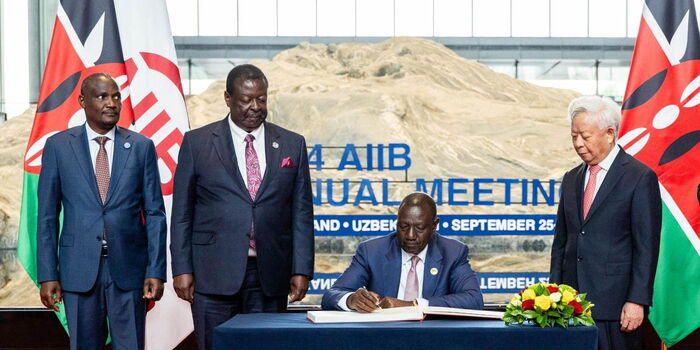Nairobi, September 4, 2024 — Members of the National Assembly’s Trade Committee have accused the Treasury Ministry, now led by Cabinet Secretary John Mbadi, of undermining critical development projects across the country.
During a tense session on Tuesday, the committee, led by Embakasi North MP John Gakuya, criticized senior Treasury officials for failing to disburse appropriated funds to key state departments. The committee members, particularly from the Departmental Committee on Trade, Industry, and Cooperatives, highlighted the industrialization and manufacturing sectors as the most affected.
“Our biggest concern as a committee is that the National Treasury has effectively decided to kill the industrialization and manufacturing sectors by starving state departments of necessary funds,” said Gakuya, a staunch supporter of the ruling United Democratic Alliance (UDA).
Aldai MP Marianne Kitany, also a UDA member, questioned the Treasury on its rationale for withholding development funds from state departments and their agencies, despite these sectors being vital for generating national revenue.
“For the government to collect more revenue from key sectors of the economy, it must first invest in them. How do you expect to generate revenue without investing?” Kitany demanded.
The criticism comes amid growing uncertainty over the future of major projects, which remain stalled due to the Treasury’s failure to release funds in line with budget provisions. Notable among these projects is the construction of six Export Promotion Zones (EPZ), each allocated Ksh500 million in the last financial year, totaling Ksh3 billion. However, data from the Treasury shows that only Ksh300 million has been released, following a directive from President William Ruto.

The committee also raised concerns over the failure to release Ksh3.5 billion for the Coffee Cherry Fund, despite Parliament allocating Ksh4 billion in the 2023/24 financial year budget. Additionally, the Treasury was faulted for not disbursing Ksh350 million earmarked for the modernization of Kenya Planters Cooperative Union (KPCU) warehouses, a project funded through the Supplementary Budget II for the fiscal year 2023/24.
Responding to the allegations, Benard Ndungu, the Director General of Accounting Services at the Treasury, attributed the delays to a revenue shortfall and a scarcity of financial resources, exacerbated by the country’s debt obligations.
“Due to the shortfall in revenue and scarcity of cash resources, the National Treasury has had to prioritize public debt repayment,” Ndungu told the lawmakers.
He further explained that the government’s focus on recurrent expenditures, including security, salaries, county allocations, and social programs like education and health, had informed the decision not to release funds to the affected development projects.
The Treasury revealed that a total of Ksh218.5 billion had not been released to five state agencies under the Ministry of Cooperatives and Micro, Small, and Medium Enterprises (MSMEs), citing a lack of funds as the primary cause of the standoff.